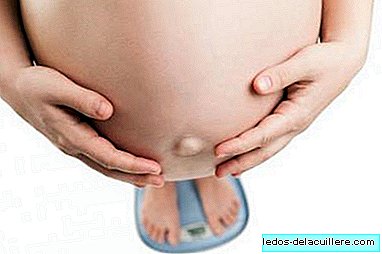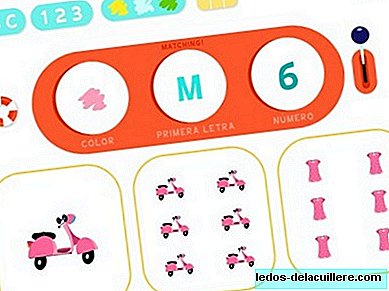
It is usual that during pregnancy control medical visits there are professionals who are too obsessed with the weight of pregnant women, and I say too obsessed because they adhere to the recommendation of 1 kg per month, which is often insufficient and that can lead to women to go on a diet to reach that requirement, being a mistake.
It also happens that some women want to avoid excessive weight gain, so avoid having to lose many kilos after childbirth. It can also be dangerous, because it has been seen that gaining little weight during pregnancy can increase the transmission of contaminants from the mother to the fetus.
Organohalogenated compounds
It has been found by researchers from the University of Oviedo in a study of 482 Asturian mothers. In it, they have seen that women who gain weight properly transmit less organohalogenated compounds (OHs) than those that do not increase enough weight.
Organohalogenated compounds are very resistant pollutants, toxic, which adhere to the fat of animals and, of course, to ours. They are present in plastics, pesticides, insulators and also in the air. Sooner or later, because of the current food, industries, the products we buy and pollution, everyone gets contaminated with them. However, when this happens during the development of the fetus in the uterus, it can negatively affect the thyroid and increase the risk of health problems already in childhood.
Study Data
The study was carried out by a team led by Dr. Adonina Tardón García and in it they studied the relationship between prenatal exposure to OHs, the mother's weight gain in pregnancy and other related characteristics. To reach the conclusions mentioned, they obtained blood samples from the mother, umbilical cord and placenta, and thus analyzed the concentration of OHs in each sample.
The study is part of the Childhood and Environment (INMA) project, funded by the Carlos III Health Institute and it sought not only organohalogenated compounds, but also polychlorobiphenyl (PCB) and polychlorobiphenyl ether (PBDE). All babies had detectable levels of organohalogenated contaminants, although they saw that the highest concentration of contaminant was the DDT insecticide, found in 99.7% of babies. This is curious, because DDT was banned more than 40 years ago, but it is so polluting that it is still part of us and, what is worse, it is transmitted to babies via the placenta.
Fighting this is very difficult, that is, against pollution, because control is relatively lacking. For example, there are laws that establish the maximum level of contaminant that a food can contain, and so on with each food, but no law calculates how much contaminant you can consume if you add several foods at once, which is precisely what we do when we eat, eat several foods together.
So as there, for now, we have it difficult (although that's precisely where the solutions should come from), we can only try to control what is under our control, and in this case the weight to gain in pregnancy It is one of those factors.
Experts say a woman with normal weight should gain between 11.6 kg and 16 kg, which, as you can see, are far from the 9 kg of the "kilo per month". So in case of pregnancy, the ideal is to eat healthy, as healthy as possible, but eat without looking at the scale. It is not the time to try to control the weight or the time to diet.












